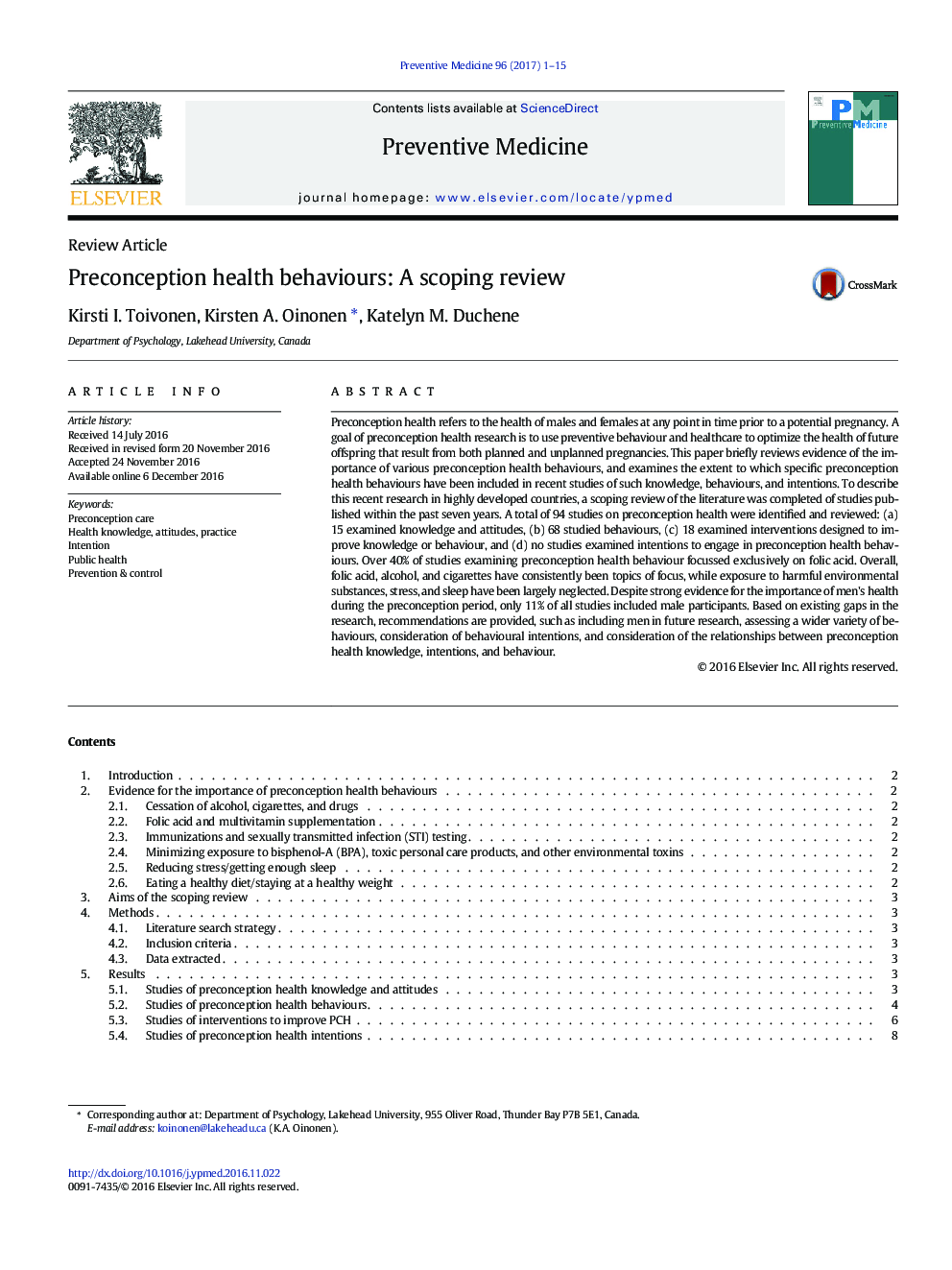| کد مقاله | کد نشریه | سال انتشار | مقاله انگلیسی | نسخه تمام متن |
|---|---|---|---|---|
| 5635703 | 1581618 | 2017 | 15 صفحه PDF | دانلود رایگان |
- A scoping review of preconception health research identified gaps
- Most research is on women, folic acid, alcohol use, and smoking.
- Other risks (e.g., environmental substances, stress, sleep loss) were neglected.
- Research is lacking on men, and people at greater risk of unplanned pregnancy.
- No recent studies examining preconception behavioural intentions were found.
Preconception health refers to the health of males and females at any point in time prior to a potential pregnancy. A goal of preconception health research is to use preventive behaviour and healthcare to optimize the health of future offspring that result from both planned and unplanned pregnancies. This paper briefly reviews evidence of the importance of various preconception health behaviours, and examines the extent to which specific preconception health behaviours have been included in recent studies of such knowledge, behaviours, and intentions. To describe this recent research in highly developed countries, a scoping review of the literature was completed of studies published within the past seven years. A total of 94 studies on preconception health were identified and reviewed: (a) 15 examined knowledge and attitudes, (b) 68 studied behaviours, (c) 18 examined interventions designed to improve knowledge or behaviour, and (d) no studies examined intentions to engage in preconception health behaviours. Over 40% of studies examining preconception health behaviour focussed exclusively on folic acid. Overall, folic acid, alcohol, and cigarettes have consistently been topics of focus, while exposure to harmful environmental substances, stress, and sleep have been largely neglected. Despite strong evidence for the importance of men's health during the preconception period, only 11% of all studies included male participants. Based on existing gaps in the research, recommendations are provided, such as including men in future research, assessing a wider variety of behaviours, consideration of behavioural intentions, and consideration of the relationships between preconception health knowledge, intentions, and behaviour.
Journal: Preventive Medicine - Volume 96, March 2017, Pages 1-15
